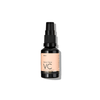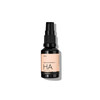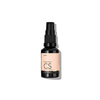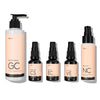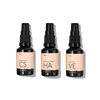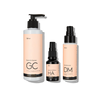Indoor Comfort, Outdoor Glow: Protect Your Skin from Air Conditioning and Heating
Air conditioning and heating are modern comforts we rely on year-round, whether to escape the summer heat or keep warm during the winter chill. However, while these systems create a comfortable indoor environment, they can also significantly impact our skin.

Understanding how air conditioning and heating affect your skin and taking steps to protect it can help you maintain a healthy, glowing complexion all year long.
The Impact of Air Conditioning on Your Skin
How Air Conditioning Affects Skin
Air conditioning units remove heat and moisture from the air, creating a cooler, less humid environment. While this is great for staying comfortable, it can lead to several skin issues, including:
Dryness: The reduced humidity in air-conditioned spaces can strip moisture from your skin, leading to dryness and flakiness.
Dehydration: Constant exposure to dry air can dehydrate your skin, making it look dull and tired.
Irritation: Dry and dehydrated skin is more prone to irritation, redness, and sensitivity.
Common Skin Issues Due to Air Conditioning
Prolonged exposure to air conditioning can exacerbate existing skin conditions and create new ones. Some common issues include:
Eczema: People with eczema may find their symptoms worsening in air-conditioned environments due to the lack of moisture.
Acne: Dry skin can overproduce oil to compensate for the lack of moisture, leading to clogged pores and breakouts.
Ageing: Dehydrated skin is more susceptible to fine lines and wrinkles, accelerating the ageing process.
The Effects of Heating on Your Skin
How Heating Affects Skin
Heating systems, especially during the colder months, can also have a detrimental effect on your skin. These systems typically reduce indoor humidity, which can lead to:
Dryness: Similar to air conditioning, heating can strip moisture from the skin, causing it to become dry and rough.
Sensitivity: Dry skin is more vulnerable to environmental factors and can become more sensitive and reactive.
Redness: Heating can cause blood vessels to dilate, leading to redness and an uneven skin tone.
Common Skin Issues Due to Heating
The skin issues caused by heating are often similar to those caused by air conditioning, but with some unique challenges:
Chapped Lips: The dry, warm air can lead to chapped and cracked lips, which are uncomfortable and can be difficult to treat.
Flaky Skin: Heating can cause skin to become flaky, especially on the hands and face, which are most exposed to the elements.
Rosacea: People with rosacea may find that heating exacerbates their condition, causing increased redness and flare-ups.
How to Protect Your Skin from Air Conditioning and Heating
Hydration is Key
One of the most effective ways to protect your skin from the effects of air conditioning and heating is to keep it well-hydrated. Here are some tips:
Drink Plenty of Water: Staying hydrated from the inside out is crucial. Aim to drink at least 8 glasses of water a day.
Use a Humidifier: Adding moisture to the air with a humidifier can help counteract the drying effects of both air conditioning and heating.
Hydrating Skincare Products: Use hydrating moisturisers that contain ingredients like hyaluronic acid, glycerin, and ceramides to lock in moisture.
Skincare Routine Adjustments
Adjusting your skincare routine to address the specific challenges posed by air conditioning and heating can make a significant difference:
Gentle Cleansers: Use mild, hydrating cleansers that won’t strip your skin of its natural oils.
Exfoliation: Regular, gentle exfoliation can help remove dry, flaky skin and promote a smoother complexion.
Rich Moisturisers: Opt for richer, more emollient moisturisers in the winter and lighter formulations in the summer.
Protecting Your Skin Barrier
Maintaining a strong skin barrier is essential for preventing moisture loss and protecting against environmental stressors:
Barrier Repair Creams: Look for products that contain ingredients like ceramides, cholesterol, and fatty acids to strengthen the skin barrier.
Avoid Overwashing: Overwashing can strip the skin of its natural oils. Stick to washing your face twice a day.
Sunscreen: Always wear sunscreen, even indoors, as UV rays can penetrate windows and contribute to skin damage.
Skincare Products to Consider

When choosing skincare products to protect your skin from the effects of air conditioning and heating, look for those specifically formulated to address dryness, dehydration, and sensitivity:
Serums and Essences
Hydrating Serums: Serums with hyaluronic acid, niacinamide, and peptides can provide an extra layer of hydration and repair.
Essences: Lightweight essences can deliver a burst of moisture and prepare your skin for better absorption of subsequent products.
Moisturisers and Creams
Day Creams: Choose day creams with added SPF to protect your skin from UV rays while keeping it hydrated.
Night Creams: Rich, nourishing night creams can help repair and replenish your skin overnight.
Facial Mists and Sprays
Hydrating Mists: Keep a hydrating mist on hand to refresh and hydrate your skin throughout the day, especially in air-conditioned environments.
Thermal Spring Water: Sprays with thermal spring water can soothe and calm irritated skin.
Lifestyle Tips for Healthy Skin
In addition to your skincare routine, incorporating healthy habits into your daily life can help protect your skin from the effects of air conditioning and heating:
Balanced Diet
A balanced diet rich in vitamins and antioxidants can support skin health:
Fruits and Vegetables: Incorporate a variety of colourful fruits and vegetables to provide essential nutrients for your skin.
Omega-3 Fatty Acids: Foods like salmon, walnuts, and flaxseeds are rich in omega-3s, which help maintain the skin’s barrier and hydration levels.
Limit Processed Foods: Reduce your intake of processed and sugary foods, which can contribute to inflammation and skin issues.
Proper Sleep
Quality sleep is vital for skin repair and regeneration:
Sleep Hygiene: Establish a regular sleep schedule and create a relaxing bedtime routine to ensure you get enough rest.
Cool Environment: Keep your bedroom cool and comfortable, as overheating can disrupt sleep and affect skin health.
Regular Exercise
Exercise promotes healthy circulation, which is beneficial for your skin:
Sweat it Out: Regular exercise helps flush out toxins through sweat and improves blood flow to the skin.
Hydrate: Remember to hydrate before, during, and after exercise to compensate for fluid loss.
Conclusion
While air conditioning and heating provide essential comfort in our daily lives, they can take a toll on our skin if we're not careful. By understanding how these systems affect our skin and taking proactive steps to protect it, we can enjoy indoor comfort without sacrificing our outdoor glow. Hydration, a tailored skincare routine, and healthy lifestyle habits are key to maintaining a radiant, healthy complexion all year round.
Remember, your skin is your body's largest organ, and taking care of it is an investment in your overall well-being.
For more tips, high-quality skincare sets and skincare products follow Fether. Stay informed and take care of your skin to enjoy both indoor comfort and outdoor glow!
